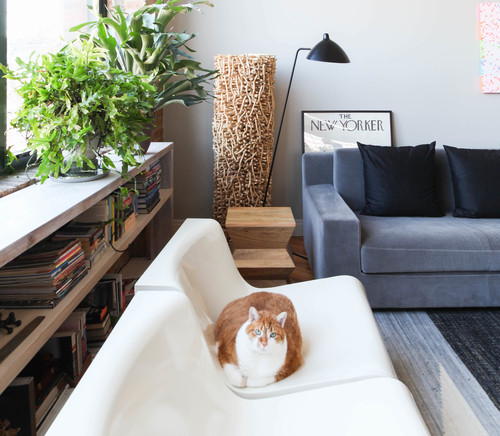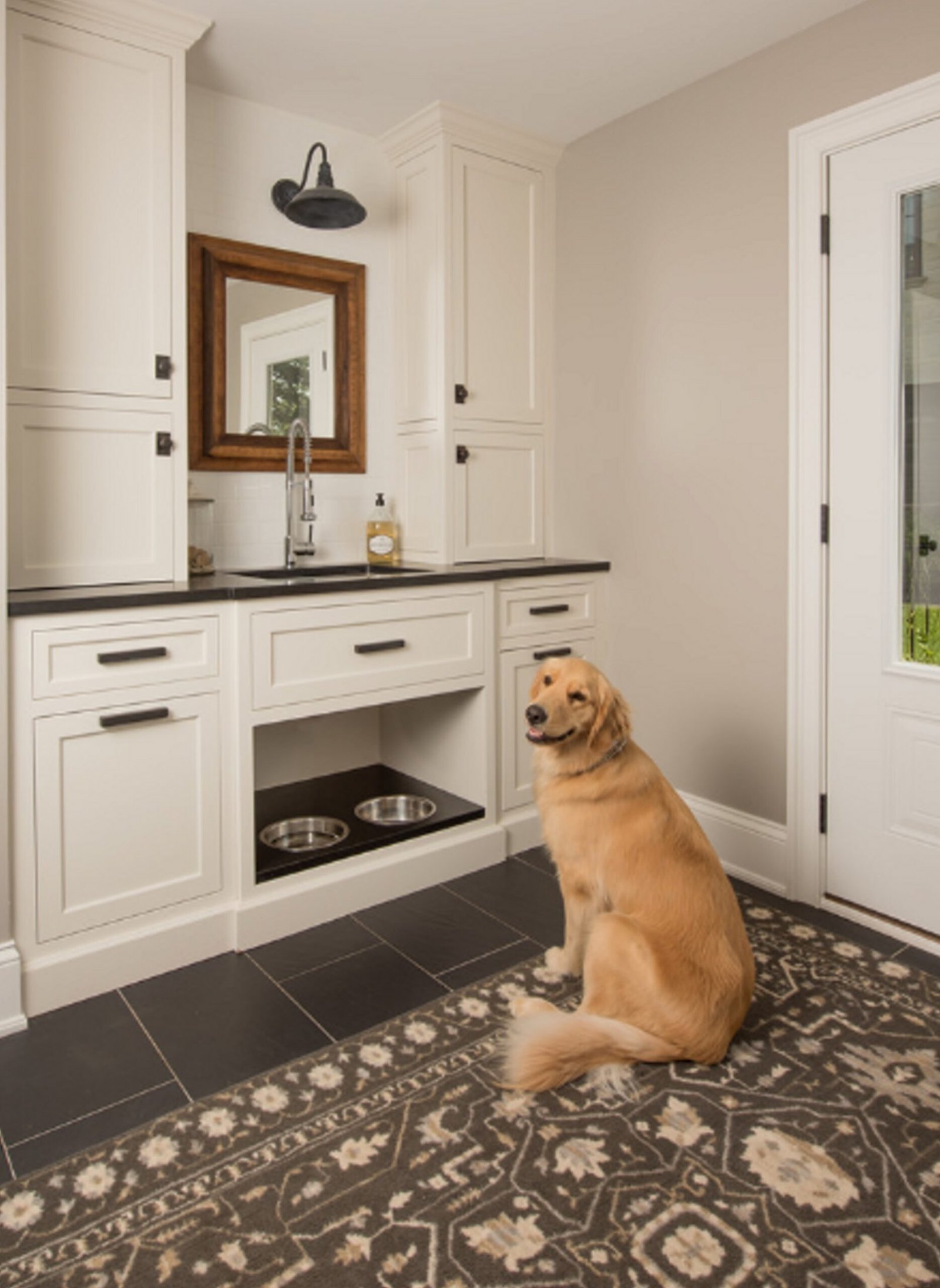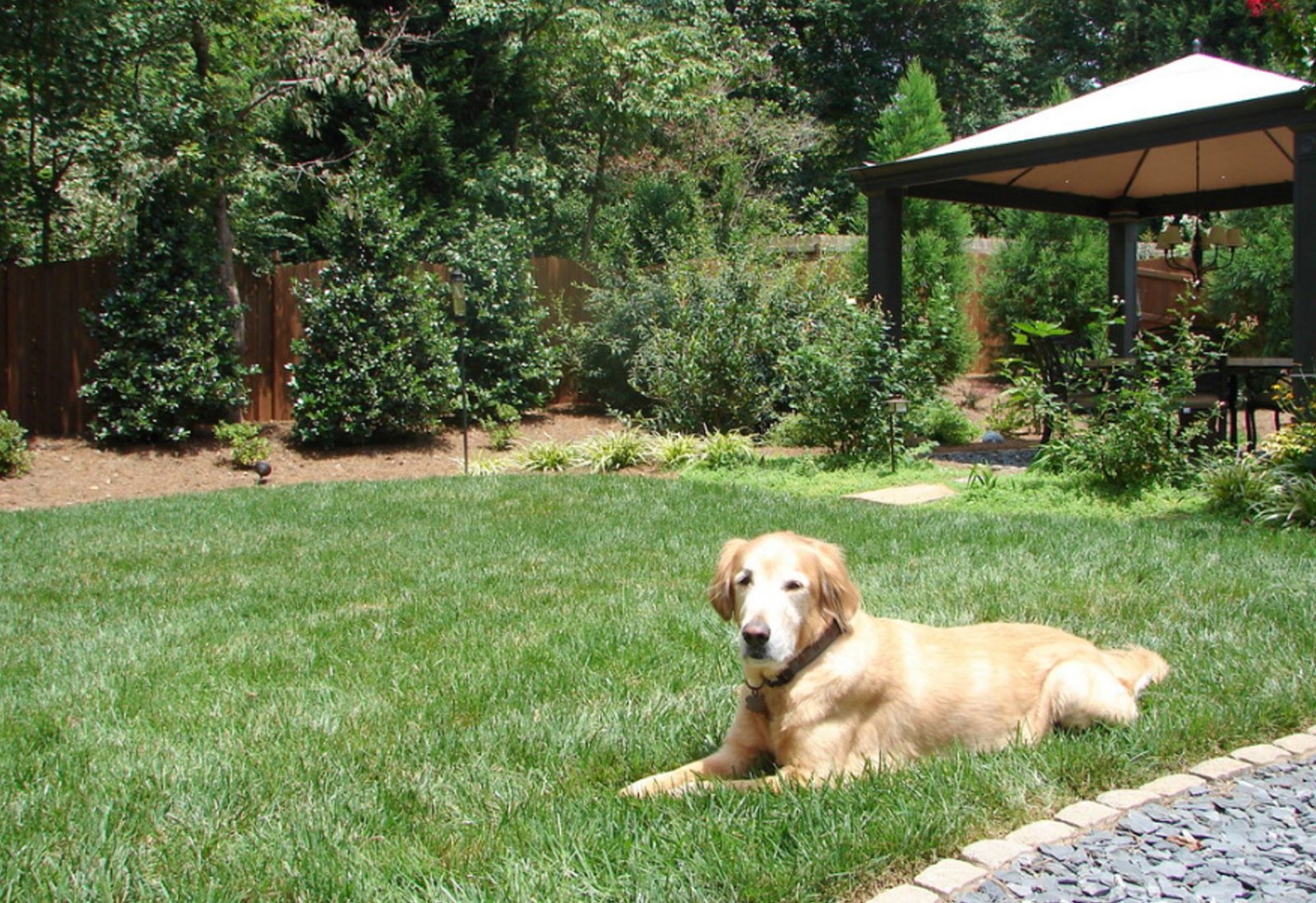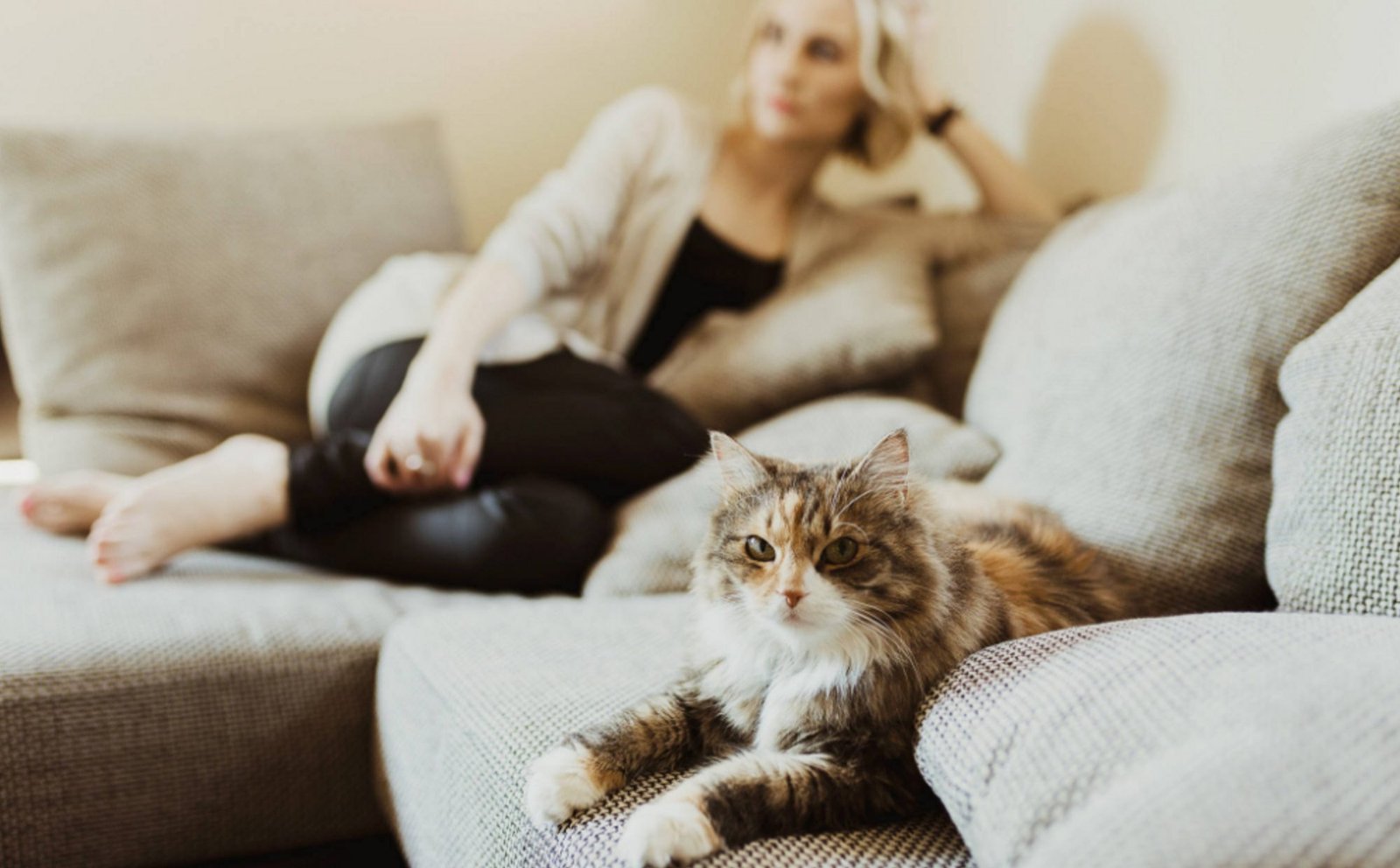A cat or a dog that is overweight can still be a nice pet, but weight gain should be a serious warning sign for the owner. A quadruped obese may suffer from diabetes, may have high blood pressure, respiratory or even kidney disease. Acknowledging these risks, many experts recommend several tips to keep your pets healthy and protect them from problems caused by obesity.

Photo by Rachel Loewen Photography – Browse living room photos
1. Exercise together. An active life is vital to maintaining an ideal weight. Just like people, pets need constant physical activity. Discover what your dog likes: if your dog loves to run through the park, take together long walks or involve him in sports such as agility ones. If your pet is a cat, spend time with her playing around and let her run around the house after an accessory that mimics a mouse.
2. Do not prove your love by giving your pet more food. Discuss with your veterinarian how much food you should give to your dog. Tell him what kind of food you have chosen for him and if you offer him other “rewards” throughout the day. Any kind of “reward” may influence significantly his body weight, so avoid giving him more than he really needs. You can also read the recommendation label on the food bags and you will feed him properly according to its weight and age.
3. Establish a strict schedule for them to eat. If you want your dog not to gain weight, do not always fill his bowl. In other words, your dog should not have to eat at its sole discretion.
In addition, quit the habit of giving “goodies” left at your table, or to be touched by his insistences when begging while you eat. Dog or cat meals have to be regular and well calculated.
4. Be patient and follow the rules. If you already have a pet that is overweight do not expect to lose weight overnight. Be patient and make sure you follow all the rules of feeding your family dog. In addition, ask your veterinarian to help give you a personalized diet for your dog or cat, if your pet does not agree to that offered by you.
5. A neutered pet need a special diet. If your pet is just neutered, he will need a special diet, but do not give him an adult diet one if he is under one year old.
6. Weigh your pet regularly. Weigh your pet regularly and if you notice major changes in a short time, contact your veterinarian.
When Do You Need to Take Your Pet to the Veterinarian? (howtobuildahouseblog.com)


